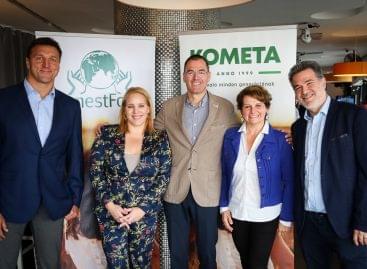Leveraging Product Claims to Build a Successful Brand Strategy
Today’s consumers can choose from a wide variety of product offers. Product advertising, social media and a network of friends and family feed into the type of products consumers want to purchase and the product attributes to watch out for. Some consumers end up feeling overwhelmed with the information available and seek specific product claims to address their actual needs.
For brands to succeed and achieve growth, fast-moving consumer goods (FMCG) manufacturers must understand consumer needs and preferences. Therefore, companies need to be informed on which claims are trending in the respective industry or category they are operating in so that they can position their products successfully in the market.
The e-commerce channel has seen tremendous growth as a result of the coronavirus (COVID-19) pandemic. More and more consumers are turning to online shopping to get their groceries and other everyday products delivered to their front door. There will likely be a sustained channel shift towards e-commerce in the future as many consumers that had yet to move online have now experienced the convenience of online shopping. Beyond online shopping, consumers also use e-commerce to search for and become informed about products with certain attributes and claims they are interested in for dietary, health or ethical reasons.
E-commerce data extraction and data science solutions allow companies to identify leading claims in industries and markets, discover opportunities and compare positioning and claims of their brands against their competitors. Euromonitor International tracks over 150 dietary and lifestyle product claims featured on hundreds of thousands of consumer products sold across e-commerce channels worldwide. This white paper explores how analysing product claims and positioning data can support companies in building a successful brand strategy and leveraging strategic initiatives.
Related news
Sharp price competition and challenges in the Hungarian food industry
Serious price competition has developed on the Hungarian food market,…
Read more >Only every fifth Hungarian eats consciously
More than half of Hungarians do not exercise for more…
Read more >Three Quarters Of Consumers Have Scanned A QR Code On A Food Or Drink Produc
Some 75% of consumers say that they have scanned a…
Read more >Related news
Penny’s ‘Markthalle’ discount concept in Germany
Penny’s marketplace concept in Germany is an evolutionary step towards…
Read more >The majority of Hungarians spend less than 50 thousand forints on Christmas gifts, sustainability is an important aspect, but not the primary one
Gift-giving is an essential holiday tradition, but what really matters…
Read more >








